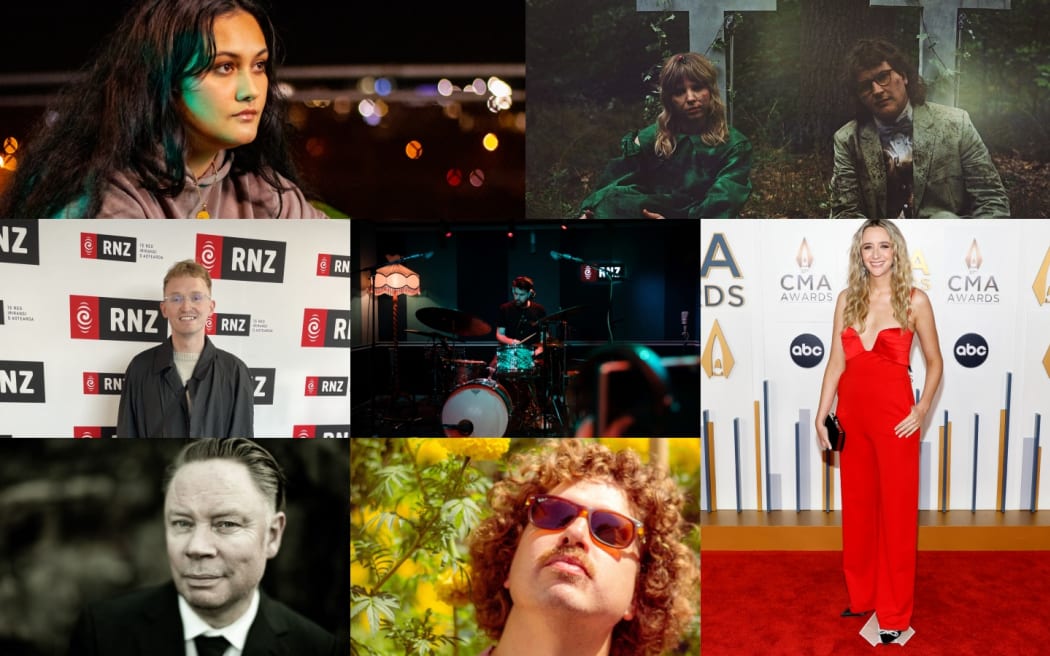
Photo: Lucy Corry / RNZ
The headlines around the music industry have felt a bit grim lately: musicians getting less money from streaming services, and reports of diminishing returns in the live scene. But how does our local market stack up?
To find out, we spoke to local musicians at different stages of their careers, to find out how, (or if), they're making ends meet in 2024.
Kaylee Bell: 'You have to be creative to make things work'

Kaylee Bell. Photo: JASON KEMPIN
After performing on The Voice Australia, Kaylee Bell's song 'Keith' became a worldwide hit, earning her an Aria win and an appearance in the US Billboard charts. In 2022 she was the most streamed female country artist in Australasia.
But just prior to that it was a different story.
"Probably 15 years I've been doing it, and really only in the last two years I've been able to free myself of day jobs," Bell says.
"I've had plenty of them: I was a kindy teacher for a long time, and had part-time jobs at cafes and clothing stores."
This is the reality for the majority of local artists, many of whom would describe making music as an investment rather than a career. Still, some manage to make things work. But what fits them might not suit others.
Bell relocated to Australia to pursue her musical ambitions, due to the strength of their country music industry. Nowadays she says that's changing, with an increasing amount of country music on commercial radio, although Australia is "still winning in the live space because of population".
However, touring doesn't come cheap.
"The outgoing costs are higher than they've ever been," she says.
"You have to be creative to make things work."
There's also the fact that Bell is an independent artist, signed to her own record label. She likes the creative control, and the freedom to experiment, such as demoing songs on TikTok to gauge fan interest before investing in studio time.
There are drawbacks: the administration involved is time-consuming, and pitching a song to commercial radio in America (the holy grail for many local musicians, including Bell), is cost-prohibitive.
"You just can't do that unless you have a label."
The music industry has seen a massive shake-up in the last 30 years, as streaming has all-but replaced physical sales, and the leading platform, Spotify, continues to attract scrutiny over its royalties model.
Bell can see both sides of the argument, saying "I agree that they don't pay enough, and I don't think writers are getting looked after in this modern landscape. Having said that, it is my income, it's a pool of money, and the more songs you have in that pool, the more chances you have of making money.
"The longer you hold onto your own rights, and your own masters, and build a catalogue, the more you have to work with. There are so many different options these days: it's not just 'sign a record deal to make money'."
Christoph El' Truento: 'I sometimes feel more like an office worker than a musician'
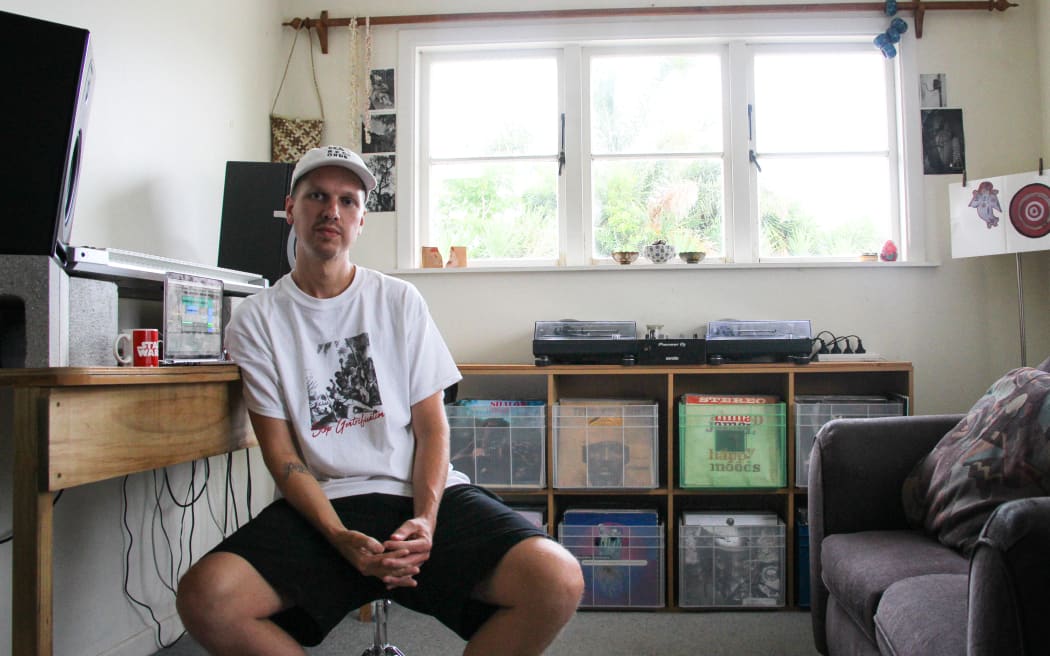
Christoph El' Truento (Chris James). Photo: RNZ / Danielle Street
Streaming has been a reliable source of income for Auckland producer Christoph El' Truento (Chris James).
"The revenue I get from Spotify and other streaming services is not something to complain about. It's always pretty solid, and it's every two months."
James has worked on the last two Avantdale Bowling Club albums (earning a Silver Scroll nomination in the process), and over the past 10 years released solo projects dabbling in different genres. While he says the discrepancy between the number of streams and returns generated is "crazy" and empathises with artists who choose to boycott, in the end "it's more beneficial to be in it than not".
After his mum had a fall and could no longer provide childcare, James decided to leave his part-time job as a chef to both focus on his music and care for his family. He says it was a gamble, but income from his projects had been rising. He thought, "I'll just jump, and hope that the safety net will come out".
As a result, he has more time to dedicate to the admin involved: "I sometimes feel more like an office worker than a musician. It's a misconception that if you're a musician you just make music. You've got to wear a lot of hats and make it work for yourself."
While songwriting royalties are helpful, they're inconsistent: "You might get $20 or something, then another time you might wake up and find all your worries have been taken care of for that month."
Truento is lucky to include DJing among his skill sets, saying that at the moment, playing sets in restaurants is his "bread and butter".
He recently received project funding from NZ on Air for the first time, saying much of the cost went into mastering to tape. Stressing that it would have happened with or without funding, the money enabled him to "just focus on the creative side, and not stress."
Lontalius: 'Knowing that it won't bankrupt me is helpful'
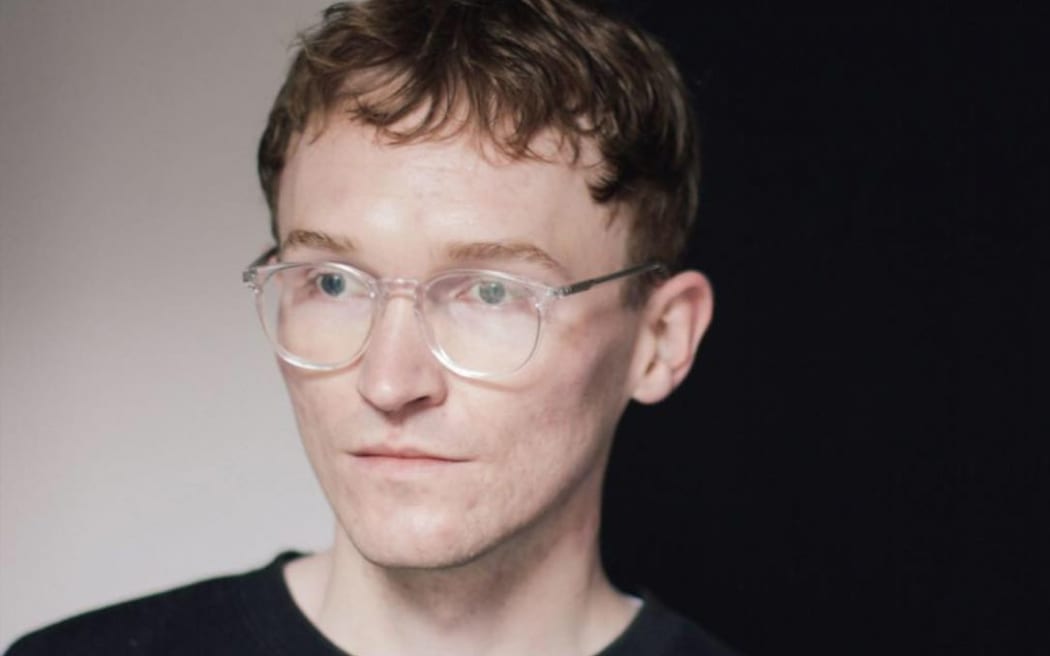
Lontalius, aka Eddie Johnston. Photo: Supplied
Funding has been useful for Auckland singer-songwriter Lontalius (real name Eddie Johnston) too. Last year he self-funded an album recorded in the UK ("producer, band, flights … everything"), but has secured NZ on Air project funding for the next one.
"I'm working on it now and knowing that it won't bankrupt me is helpful."
Johnston is a somewhat unique case, with a song in his back catalogue taking on a life of its own. He enjoys high streaming figures on several tracks, including his remix of Australian pop star Troye Sivan's 'Ease', but 'Sleep Thru Ur Alarms' dwarfs them all, on its way to 100,000,000 plays on Spotify alone.
"In 2020 it really peaked when everyone was inside and on TikTok," he says.
"I don't promote it, people just use it on videos and share it with each other. This audience in turn goes to Spotify to listen to it and put it on their playlists, which is where I make the money and can reach some of them."
This contact with fans is important to Johnson, who says his focus is on "maintaining a small and dedicated fanbase".
Doing this online is one thing, but he says performing live "is still the most valuable way to do it."
Earth Tongue: 'It’s been getting better in terms of how much we’re losing'
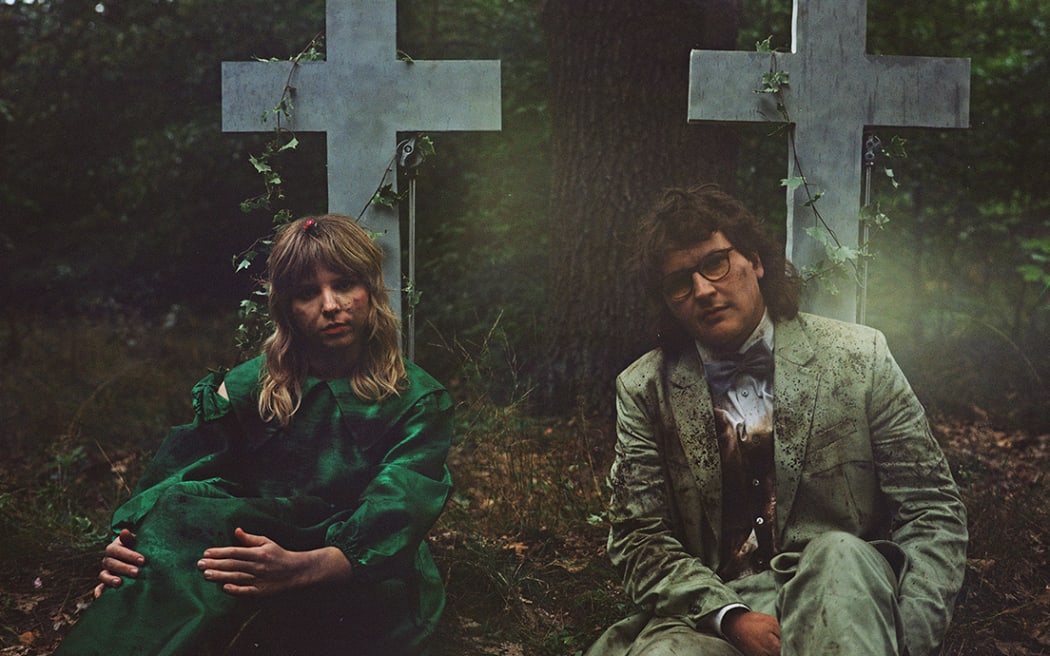
Gussie Larkin and Ezra Simons of Earth Tongue. Photo: Supplied
For some acts performance can be a source of income, as well as a way to reach new audiences. The NZ Music Commission initiative Outward Sound was set up in 2005, issuing grants to help local musicians tour other countries.
Gussie Larkin, of Auckland duo Earth Tongue, says it's the only way she and drummer Ezra Simons are able to tour overseas.
The couple recently played shows in the US, financing themselves while anticipating the funds, which are issued quarterly.
"I've factored it into the budget, says Larkin, "sort-of predicted how much we might get."
Earth Tongue's last national tour "made a really good profit", which Larkin attributes in part to their size.
"It's because there's only two of us. And because we're a couple we only need one room."
This leads to savings on travel and transporting gear. Simons points out their stripped down approach "makes us more appealing as a support act too."
Earth Tongue opened for American musician Ty Segall on his recent New Zealand dates, which led him to invite them to join him on an upcoming European tour. They've taken the opportunity to relocate there, a calculated risk Larkin says feels promising.
"The scene over there is really supportive of heavy rock music on the fringes. There's a place for us there."
They encouraged their booking agent Sound of Liberation (who specialise in heavy rock), to "book as many shows as possible". They're encouraged by the results of their last three European tours.
"It's been getting better in terms of how much we're losing," Larkin says.
"I think the last one we broke even."
The couple have helped fund Earth Tongue up until now by both working various music-adjacent jobs. For the past few years, Larkin has worked part-time, in order to focus on her two bands (she also plays in Taite Music Prize nominees Mermaidens). They're hoping the move will help make the band their permanent career.
Simons says that's not possible in Aotearoa, "not with our kind of music".
"We've been a band here for seven years, and feel like we've reached the ceiling of our audience."
Delaney Davidson: 'The life of an artist is sacrifice'
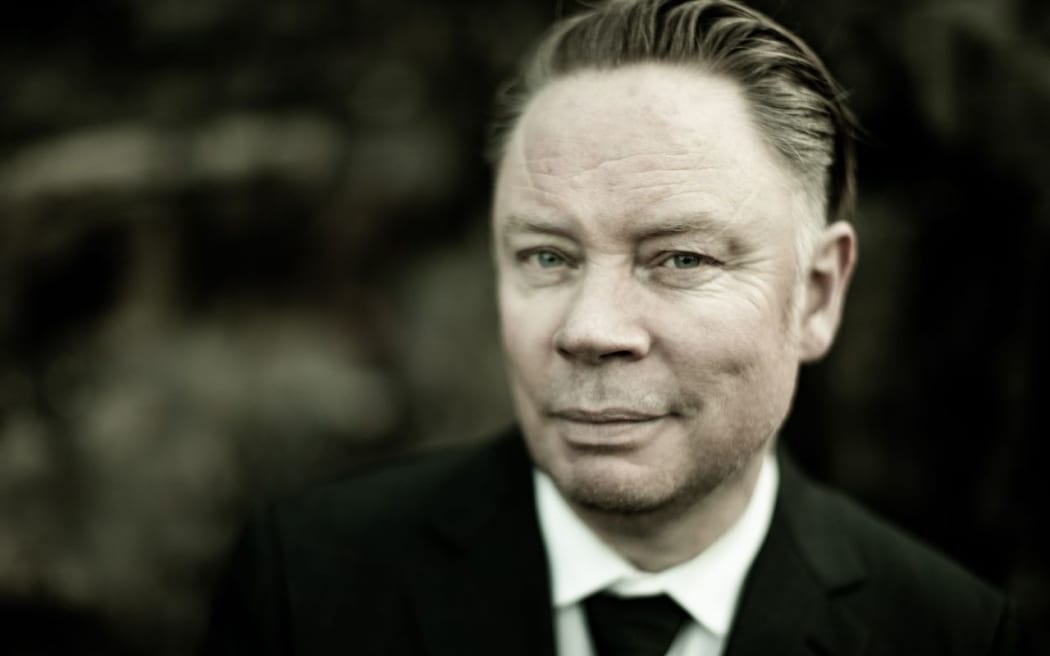
Delaney Davidson. Photo: Supplied
"The life of an artist is sacrifice," singer-songwriter Delaney Davidson says.
"If you start seeing someone with a profile that's relatively prominent, you start thinking they're really successful. You forget they actually paid to put those posters up. It costs to be a high-profile musician.
"A lot of the industry is musicians paying to prop it up. The classic example is a band going home after a gig with $60 each, but the sound engineer getting $400."
Take South by Southwest, the Texas music festival and industry event that annually hosts New Zealand performers, Davidson says.
"All the surrounding costs [like registration fee, backline costs, food, accommodation, travel], who pays that? The musicians, because they've been sold the dream that they're able to go out and manifest their own creative future in that industry."
Davidson relocated to Europe in 2000, and as a solo performer, was able to tour via train. Taking his laptop with him, he could print CD covers at various train stations, and burn CDs during sound check at the venue. When not travelling he was house-sitting, therefore not paying rent. He eked out a living like this for 10 years.
Davidson agrees that Spotify underpays artists: "you're getting nothing. You're getting .003 of a cent per stream". He says buying "records, t-shirts, whatever they're selling" is a better way to support musicians.
For him, distribution (physical sales and streaming royalties), is nowhere comparable to ticket sales, and publishing; specifically song placement in film and television. He says his success in the latter comes from connections made over 20 years of being a musician.
Despite emphasising the long hours and hard work required, he's extremely grateful for support from generous fans.
"Music should be about human beings being proud to support this thing that distinguishes us from apes, this incredible, magical medium that can transcend time, distance, or any emotional state."
Julien Dyne: 'Funding enables me the time to focus on recording'
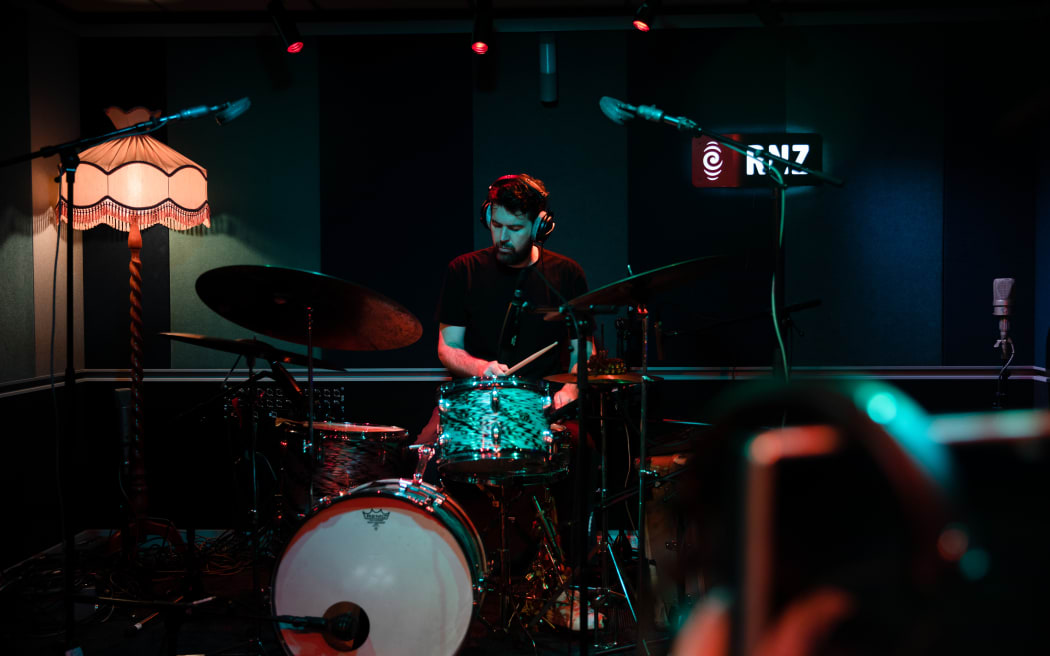
Auckland drummer, DJ, and general all-rounder Julien Dyne. Photo: RNZ / Cole Eastham-Farrelly
Auckland drummer, DJ, and general all-rounder Julien Dyne has built a career from diversifying, playing in outfits like Avantdale Bowling Club, The Circling Sun, Half Hexagon and The Lahaar, and plenty more. He counts his income streams as "live gigs ( large well paid festival slots to small underground niche work ), royalties (digital and physical album sales or downloads / licensing syncs), recording sessions, teaching, DJ gigs, remix jobs, production work for film and tv, grant / funding money, and equipment hire."
Like Davidson, he's built up a lot of contacts around the country during his career, which means saving on things like transporting instruments.
"I always use backline or hired/borrowed drums when I'm outside the city I live in. Plenty of simpatico whānau and friends with vintage gear in various spots to use and assist when I'm hosting. I do however always bring vintage snare and cymbals: personalised equipment."
Working as a session musician (being hired to perform on an album or at a show) is one option available to players good enough at their instrument, (and Dyne is one of the best in the country), but he can afford to pick and choose.
"I tend to charge a lot of money and focus on the areas in which I've cultivated my sonic aesthetic, more than try be the every person who doesn't have an agenda."
Like many of the musicians spoken to, Dyne is grateful to have access to arts funding, which he says is "absolutely integral" for financing long term or in-depth projects.
"It enables me the time to focus on recording rather than gigging and hustling continuously."
Jordyn With a Why: 'Live performances are investment gigs'

Jordyn With A Why. Photo:
In 2022, Jordyn With a Why's second single, 'Brown Melodies' was nominated for a Waiata Māori Music Award. That song is now on its way to two million streams on Spotify, not bad for an artist whose music career is still in its early stages.
Jordyn With a Why (real name: Jordan Rapana) says "live performances are investment gigs at the moment, they give me an opportunity to showcase to audiences that I otherwise wouldn't be exposed to."
Rapana performs bilingually, and has goals for her music that extend beyond the artistic or financial: she wants to get te reo Māori on as many mainstream platforms as possible.
"Streams are important for that, but so is radio play and trying to get my music into commercials or TV/film, supermarkets, aeroplanes, malls. Public spaces.
"I, and many other Māori artists I know, are in this space because we believe in te reo Māori. I think the more we normalise our reo and our sounds, the further it will go. We see it happen for K-pop, Afrobeats and island reggae, and I believe that can happen for reo Māori music too.
"I'm not sure that 'market value' is the right framework for assessing the success of waiata reo Māori, but I do think that the more we normalise and elevate reo Māori music, the more market opportunities will also rise, both nationally and internationally."

